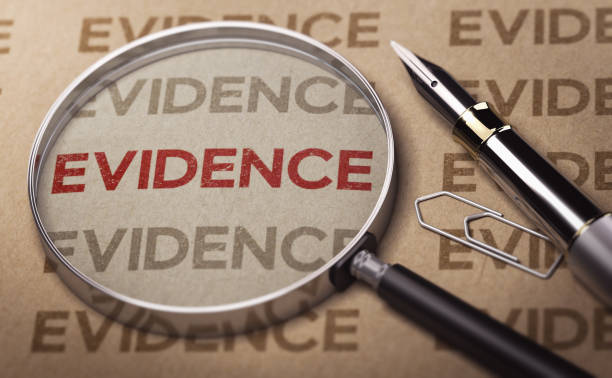Disability insurance is quite tricky to navigate.
This is because disability could either be short-term or long-term.
Both carry considerable expenses but the long-term disability claim can be pretty staggering for insurance companies. This is especially true when the claim is fraudulent, curated to milk the insurance company dry.
The cost of investigating a disability claim is quite enormous.
Unfortunately, the percentage of patients who file fraudulent disability claims is estimated to be around 80% of the total claims in a year.
It is, therefore, understandable that disability insurance companies would want to go the extra mile and hire investigators to thoroughly investigate and confirm that the claim is genuine.
In this article, you’ll be exposed to how disability insurance is investigated by investigators.
Table of Contents
- Why Do You Need to Know How They Investigate?
- What Are Insurance Investigators After?
- Disability Insurance Investigators: How They Investigate
Why Do You Need to Know How They Investigate?
The process is unfair to patients who are genuinely hurt and in need of financial remuneration. This is because of how long it takes to process and finalize the investigation.
Insurance companies are also known to be bullies when it comes to protecting the interests of their companies.
While the law has policies in place to prevent disability insurance companies from infringing on the policyholder’s rights, the truth is that they can make something of anything if they are persistent and thorough enough or if the client has no solid legal representation.
It is, therefore, important to understand how disability insurance investigators work, to be better prepared to protect your claim.
They will investigate you to the point where it is legally impermissible to proceed, so it is only fair that the claimant properly understands their patterns as well. This will help to avoid playing into their hands.
Related: How Many Hours Can You Work on a Disability Living Allowance? (Answered)
What Are Insurance Investigators After?
They are majorly after proof. They seek proof to invalidate your disability claims. Anything to indicate that your condition is not as bad as you claim, or that you have no disability whatsoever.
Everything they do, ask, and watch is to find solid evidence that you are lying.
It is essential to note that saying the truth is not enough to guarantee that the disability insurance investigators will not find damaging evidence to use against you.
Hence, it is significant to be careful when you notice or are aware that you are being investigated. An excellent lawyer will use even the most unsuspecting evidence to either deny you of your benefits or make you settle for an insubstantial amount.
Disability Insurance Investigators: How They Investigate

Now that we’ve established the investigators’ thought process, let’s look at how they go about investigating people with a disability claim.
Related: How to Change Your Address with Social Security Disability
They get to know you
It’s called a background check. They pull up every document that shows them what exactly makes you tick. Some documents might trail as far back as high school. They get an overview of your activities, your previous life choices, and what your history entails.
They confirm the basics — your name, family, and financial details. Previous disability claims, everything.
They go over the obvious information you would willingly volunteer about yourself and the things that you would be reluctant to divulge.
Once they have an overview of who you are, they move on to the next step.
They ask about you
They ask you about yourself, then approach your loved ones, neighbors, and colleagues to get confirmation and clarity. Here, they try to fill in any blanks from the background check.
They also do this to confirm the events of the incident that led to the disability. You get a chance to tell your side of the story again and they get to confirm with everyone around you about whether or not the story correlates.
A hidden reason for doing this is to physically assess you up close themselves. So, they watch your mannerisms and your interactions with others.
They might also bait you into doing things for them just to assess your mobility and have a feel for whether or not your disability is as severe as you claim.
Related: How to Score Headache Disability Index
They watch you

The investigators watch you physically and digitally. They hang around your home and watch from afar in cars.
This might seem similar to the ones you see in movies, except this time, it’s real.
They cannot legally have access to your home unless you consent to a home visit, but they are not barred from watching you from a distance.
Depending on how professional the investigator is, you might not notice that you are being watched. This is, however, one of the key ways in which they conduct their investigations. So, be careful not to give their cameras evidence to capture.
Asides from the physical, the more overt and less obvious ways that they can watch you include making gadgets do the watching.
They wire your phone and put a listening device on your lawn and even around the places you frequent, like your family or friends.
That way, they can listen to your conversations and monitor your location and activities.
They follow your digital trail
The internet does not forget; all investigators are very aware of this. They will scour through your social media pages for evidence that you have ever defrauded or engaged in deceitful practices.
They will also monitor your current activities online to keep abreast of your updates.
Claimants are usually advised to minimize their social media usage when they are under the scrutiny of disability insurance investigators. They are also advised to change their privacy settings to private.
Investigators know this as well and so hire proficient tech users if they don’t already have those on their team. That way, they can easily access private accounts.
It is, therefore, better to completely lay off social media pending the closure of the investigation.
Family members and friends should also be alerted to avoid sharing group pictures and videos that disclose the happenings in private family or friends’ gatherings where the claimant is present.
They re-evaluate you medically
They can do this by having direct conversations with your attending physician or insisting on a different consultation entirely at a facility of their choosing.
They then compare both results and compare the medical opinions. Likewise, they can insist on tagging along on your hospital visits to confirm that the appointments are real.
Check Out Related Posts
- Advantages and Disadvantages of Being Deaf
- How to Weigh Someone Who Can’t Stand
- Is Stuttering a Disability? Everything You Should Know
- How Do Deaf Parents Hear Their Baby Cry? (Answered)
- Is Facet Arthropathy a Disability? All You Should Know
- Is POTS a Disability? Everything You Should Know
- Sign Language Puns: Everything You Should Know
- Can Blind People Cry? (Answered)
- 4 Surprising Ways Deaf People Wake Up
- Can Deaf People Hear in Their Dreams (Answered)



